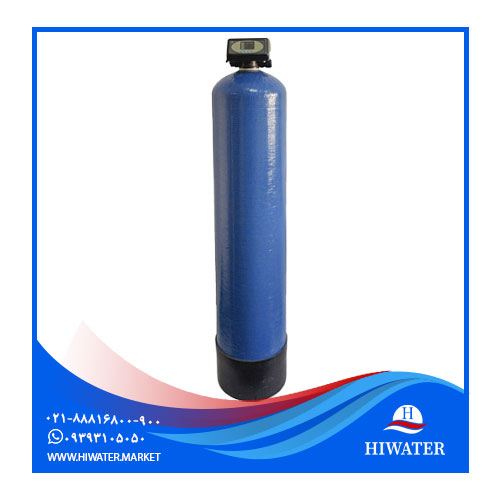Purchasing a Water Softener
Purchasing a Water Softener
A water softener is a type of water treatment system for eliminating minerals like calcium and magnesium from water. High concentrations of these minerals contribute to water hardness, which can be resolved by using a water softener that removes these minerals, resulting in softened water. The white residues that often appear as limescale on faucets and showerheads are, in fact, deposits of calcium, magnesium, and other minerals. Water is considered “hard” when its mineral content exceeds the acceptable standard, and thus water softeners are used to solve this issue.
Signs of Water Hardness
White mineral deposits such as plaster and lime on faucets and showerheads.
Clothes are stiff and rough after washing.
Soap scum on bathroom walls and surfaces.
Dryness or irritation of the skin after bathing.
Hair roughness and dryness after taking a shower.
Reduced lathering of soaps, shampoos, and detergents.
White spots appearing on clothing, glassware, dishes, and so on.
Clogged pipes, leading to decreased water pressure due to the existence of scales.
And so on
Components of a Water Softener
Softener Valve: Includes valves like air release valves, drain valves, inlet and outlet valves, etc.
Softener Tank: This cylindrical structure contains the internal components. Tanks are generally made from fiberglass or metal. Based on the material used for the body, it is categorized as a fiberglass softener or a metal softener.
Resin: Resin is the core element of a softener which is responsible for separating ions in the water and eliminating hardness.
Salt Tank: It is typically made of polyethylene and is used for regenerating the resin.
And so on.
How a Water Softener Works
The functioning of a water softener is generally similar to a magnet’s operation. To know about the operation of a softener, consider how magnets have opposite poles that either repel or attract each other. Inspired by this principle, water softeners have been engineered to remove hardness from water. In a resin-based water softener, calcium and magnesium ions act as positive poles, while the resin particles act as negative poles. As hard water passes through the resin, it exchanges its calcium and magnesium ions with sodium ions and effectively softens the water. Since the resin has a limited capacity for holding calcium and magnesium, it eventually becomes saturated and cannot absorb the minerals. To restore the resin’s effectiveness, periodic regeneration is necessary, depending on the device’s capacity and the water’s mineral content. This regeneration process renews the resin’s ability.
Advantages of Using a Water Softener
As previously discussed in the section on the signs of water hardness, an excessive amount of dissolved minerals reduces the effectiveness of detergents by limiting their ability to produce foam. This leads to increased detergent usage. However, by using a water softener, this problem is resolved, resulting in lower detergent consumption and more efficient use.
Prevention of blockages in pipes and systems, increasing their lifespan and maintaining consistent water pressure.
Improvement of performance and efficiency of water-related appliances, such as kettles, washing machines, dishwashers, and water heaters.
Prevention of skin irritation and dryness after bathing, thereby maintaining skin health.
Elimination of white stains on dishes, clothes, and other surfaces.
And so on.
Applications of Water Softeners
Water softeners are widely used in various industries and projects, such as:
Textile manufacturing
Cooling towers
Boiler rooms
Carpet cleaning services
Oil and petrochemical industries
Leather production
Food and beverage industries
Water Softener Pricing
The price of a water softener is affected by several factors, including:
The material and thickness of its body.
The device’s capacity.
The type and quantity of resin.
The device type in terms of being automatic or manual.
Additional equipment.
Purchasing a Water Softener
When purchasing a water softener, it is important to pay attention to several aspects:
Considering the material and thickness of the body: Devices made with higher-quality materials and thicker bodies have a longer lifespan.
Evaluating the volume of water you need to soften and selecting a unit with a capacity that suits your requirements.
Paying attention to the type and quantity of resin used in the system.
Paying attention to the brand and manufacturer.
Purchasing from trusted stores.
And so on.
For more information on water softeners, and their prices, or to order, feel free to call the listed numbers and consult with our team of experts to purchase the best water softener for your needs.
Showing 1–8 of 48 results
-

سختی گیر رزینی 120000 گرین اتومات هایواتر با منبع FRP
Read more -

سختی گیر رزینی 120000 گرین اتومات هایواتر با منبع فلزی
Read more -

سختی گیر رزینی 120000 گرین نیمه اتومات هایواتر با منبع FRP
Read more -

سختی گیر رزینی 120000 گرین نیمه اتومات هایواتر با منبع فلزی
Read more -

سختی گیر رزینی 150000 گرین اتومات هایواتر با منبع فلزی
Read more -

سختی گیر رزینی 150000 گرین نیمه اتومات هایواتر با منبع فلزی
Read more -

سختی گیر رزینی 180000 گرین اتومات هایواتر با منبع FRP
Read more -

سختی گیر رزینی 180000 گرین اتومات هایواتر با منبع فلزی
Read more

